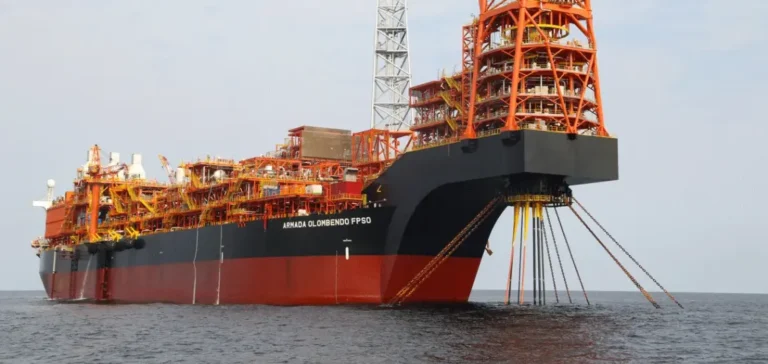Azule Energy, a joint venture bringing together BP, Eni and a group of Angolan companies, has revealed the discovery of a major natural gas and condensate field in block 1/14, located in the Lower Congo Basin. This announcement was made by the country’s Agência Nacional de Petróleo, Gás e Biocombustíveis (ANGP – National Agency of Petroleum, Gas and Biofuels), highlighting the unprecedented nature of this drilling, which was fully dedicated to gas exploration.
A first for Angolan gas exploration
The Gajajeira-01 well enabled the identification of rock layers containing both gas and condensates, according to initial information provided by Azule Energy. Discovered gas volumes could reach 1 trillion cubic feet, while associated condensate reserves are estimated at one hundred million barrels. This is the very first exploration well specifically designed for gas exploration in the country, representing a notable development for the local industry.
Block 1/14, where the discovery was made, is operated jointly by Equinor, holding 30%, Sonangol Pesquisa e Produção (E&P) with 25%, and the private Angolan company Acrep S.A., which holds 10%. The remaining shares are divided among the partners of the Azule Energy consortium. The partnership between international operators and national companies illustrates the collaborative dynamic structuring Angola’s oil and gas sector.
Congo Basin potential and sector outlook
Azule Energy Chief Executive Officer Adriano Mongini described this step as “historic” for the country’s gas exploration, according to a statement released by the company. He highlighted that this success confirms the potential of the Lower Congo Basin, a region already known for its oil reserves and now recognised for its gas resources.
Next phases will include further assessments to determine the commercially recoverable volume of the field. This discovery comes as Angola seeks to diversify its energy resources and strengthen the exploitation of its non-oil deposits. The ANGP indicated that the drilling campaign in block 1/14 will continue with other exploration wells targeting identified gas formations.
Confirmation of such a significant gas volume in a region previously underexplored for this resource is attracting the interest of international operators present in the country. According to ANGP, the discovery made by the consortium led by Azule Energy could lead to new phases of development in the Congo Basin.






















